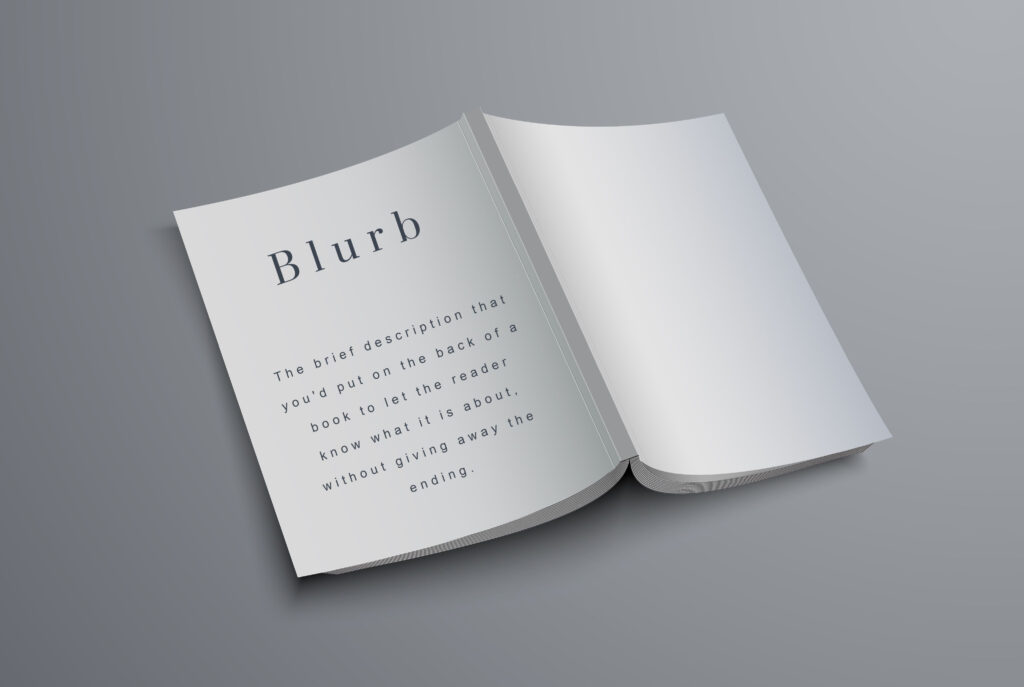16 Terms You Must Know as an Author
Every career has a set of jargon that all involved understand, and authors are no exception. So there are certain terms that writers should know. There is an intimidating amount of publishing slang out there, but here are the 16 that I found the most useful when I first started down the publication road.

Term for Authors 1: Advance
As a beginning author, you’ll be lucky to see this term. An advance means an advance on the money you will earn in royalties on your book. Think of it as a little cash upfront before your book comes out. You’re more likely to get this from an older, more established publisher.
Term for Authors 2: ARC (Advanced Reader Copy)
An ARC is what it sounds like. This is a copy of your book that is given out in advance to readers. It can be as simple as a special treat for loyal fans, parts of a contest, or something you send out to influential people for advertising.

Term for Authors 3: Blurb
This is an easy term to learn but can be hard to write. A blurb is a short (normally around 500 words) book description that is written to catch a reader’s attention without giving away the ending. It should also be used as part of any queries you write to publishers/agents. Incredibly important, since it is your first attention grabber
Term for Authors 4: Commission
This is a term you need to be aware of if you are looking for an agent. Agents take a commission from you. That means, they will get a certain percentage of the money you earn from your book. You’ll need to use your judgment as to whether you feel having an agent represent you is worth giving up some of your profits or not. Also, make sure that the percentage that the agent is asking for is comparable to other agents at the same level.

Term for Authors 5: DRM (Digital Rights Management)
DRM has risen out of the need to fight the pirates of the world. It is a type of software whose job is to protect your eBooks from being sold or given away without your permission. Knowing about this is most important if you’re self-publishing your eBooks. Many of the platforms will ask if you want to opt-in on their DRM. Check out all their details before making your decision.
Term for Authors 6: Earn Out
I love this term. You want to achieve this term if you’ve published with a house that gives you an advance. Earn Out means that you’ve sold enough books that your percentage of royalties now covers the amount of your advance. Now, you start getting royalty checks. Earning out is the first sign that your book is doing okay in sales.

Term for Authors 7: Galleys
This has nothing to do with cooking or ships. Galleys in the publishing world are advanced copies of your book that your publisher sends out. It is most often used with reviewers or bookstores before the official release. If you’re self-publishing, you would be sending these out yourself. The difference between a galley and an ARC is mostly how it’s being used. Galleys are geared to promote your new title.
Term for Authors 8: ISBN (International Standard Book Number)
It’s surprising how many people don’t know what an ISBN is. Maybe it’s because we read so many digital books now that we don’t pay attention to the first pages or book back. Every book has a different ISBN. It is an identification number for the book that is internationally recognized and can be found on the copyright page and near the barcode on the back of the book. If a publisher is publishing you, they take care of giving your book an ISBN. As a self-publisher, some formats do it for you while with others you may have to purchase one.

Term for Authors 9: Mass Market Paperback
When I first started writing, all I wanted was to be in a Mass Market Paperback. These are the normal-sized paperbacks that could be found anywhere that books are sold (I got my wish with a short story in Transformers Legends). Mass Market books are in larger printings than the Trade Paperback and could, therefore, have higher sales.
Term for Authors 10: Multiple Submissions
I’ve had beginning authors ask me about this one often. Many publishers will not accept multiple submissions. That doesn’t mean you can’t send them more than one book that you’ve written. It means they don’t want to see a book that is out to other publishers. It’s understandable from their point of view. What publisher would want to find a book they like, only to discover another publisher is trying to get the rights to it simultaneously?

Term for Authors 11: Query
The bane of my existence. I hate writing queries. Not because writing a query is hard. It’s pretty easy compared to writing a novel, or even a synopsis. But this is the first thing that a publisher will see from me. In the query, you are giving the publisher a brief description of your novel and asking if they would like to read it. It includes the blurb and basic information like word count and genre. There are several templates out there to use. Jane Friedman does an excellent job of leading you through writing a strong query in her blog. Check it out if you need help.
Term for Authors 12: Royalty
Money, money, money. Royalty is the money you get from your writing. It’s what separates the hobbyist from the professional. Are you getting paid, even a few dollars, or not?

Term for Authors 13: Slush Pile
No, it’s not a tower of dirty, brownish, wet snow. But it is something you want to get out of as quickly as possible. The slush pile is the stack of unsolicited manuscripts sitting on every editor’s desk, or the file full on their computers. You have to understand how many hundreds, even thousands of queries a publisher can receive. You need to make sure that your query and first chapters are on point and gripping to pull yourself out of the slush.
Term for Authors 14: Synopsis
In terms of writing, this is tough for me. It’s boiling down your entire novel into just a few pages. This is to give the publishers an idea of what they’ll be looking at before they start reading.

Term for Authors 15: Termination Clause
A careful reading of your publishing contract before you sign is essential. I’m lucky. I have a lawyer in the family that always looks over any before I sign, pointing out areas that I need to pay attention to. The Termination Clause is one of those sections. It’s the clause in your contract that spells out exactly how and why you or the publisher can break the contract. Hopefully, you won’t find yourself in a place where you or the publisher wants to enact the Termination Clause, but it’s always good to be up on the legal side of the profession.
Term for Authors 16: Trade Paperback
Trade Paper or Trade Paperbacks are the paperback books you see in the stores or libraries that are a little bigger than the Mass Market versions, which are smaller to fit in spinning racks in airports, grocery stores, and the like. They tend to have a larger font than the Mass Market and are a bit more expensive. My first published book was a Trade Paperback, so they have a special place in my heart.

Final Thoughts
These terms just scratch the surface of professional authors and publishers, but it’s a good start. As you progress with your chosen career, you’ll learn more. Never be afraid to ask about a term you don’t understand, especially as a new writer. Add any terms you’re confused about in the comments






